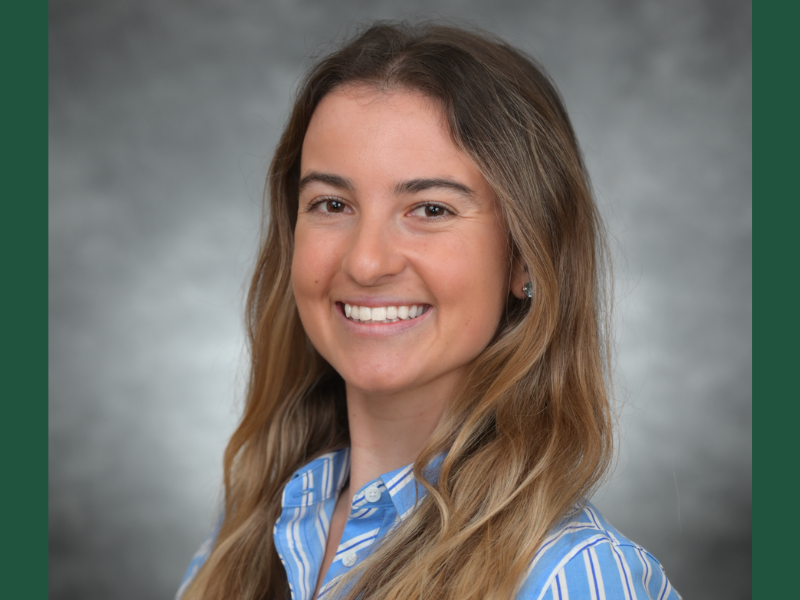Savannah Baus contributing to local healthcare response to Super Bowl LIX
The Super Bowl is returning to New Orleans in less than two weeks, bringing with it a host of logistical challenges beyond the big game itself.
Savannah Baus (BSPH '23), an MPH student in Disaster Management, is part of a team working to tackle some of those issues head on. Through her internship with Ochsner Health, Baus is assisting system leadership in developing the 2025 Super Bowl Incident Action Plan.
Her role involves taking a comprehensive approach to preparing for the massive influx of people expected in New Orleans—and the strain that influx may place on the local healthcare system.
After learning about the opportunity from Dr. Stephen Murphy, Baus connected with Zander Schwartz (MPH DM '21, BSPH '19), manager for emergency preparedness logistics at Ochsner, the lead medical sponsor for Super Bowl LIX.
Together, their team has been ensuring that Ochsner’s facilities are not only fully operational but also equipped to handle a potential surge in patients.
Beyond the game itself, numerous events -- some sanctioned by the league and unofficial gatherings -- will place additional demands on local healthcare infrastructure.
“This is a Level 1 event on the special event assessment rating, which is the highest assessment you can get,” Baus said. ”So, it's been really neat to be on the private hospital side of things and really understand how hospitals coordinate their preparedness activities.”
Preparedness encompasses a wide range of challenges, from ensuring facilities are properly staffed, to anticipating unexpected challenges and having contingency plans in place.
“We build out this incident action plan to make sure that nothing's missed and everything's detailed out on what to do, when to do it, how to do it... specifically... when to activate certain communication operations before the game, during the game, and when to end those communications after.”
Baus pointed to recent building collapses in New Orleans as prime examples of unforeseen crises that demand adaptability.
“One of the interesting things about planning for an event like this is your plans are set to allow for you to navigate those curveballs, so your plans have to be adaptive. And the people following the plans have to be adaptive as well. (Incidents like the building collapses) certainly affect the ability to communicate with city officials and other agencies because now their attention is focused on yet another infrastructure problem piece that's going on.”
“It can be a little complex.”
Baus sees her disaster management coursework at Tulane preparing her for this role, and she’s excited to see where else it might lead her.
One thing she knows: the public health component to disaster management is the most important part of the process.
"There needs to be a lot more room for public health to be integrated into this field. Getting a degree like emergency management provides a strong foundation in operations and logistics, but public health integration is at the core of keeping people safe. That's why I love the MPH program. You can manage disasters in countless ways, but at the end of the day, our duty as public health professionals is to ensure that people are safe and that people are healthy."

